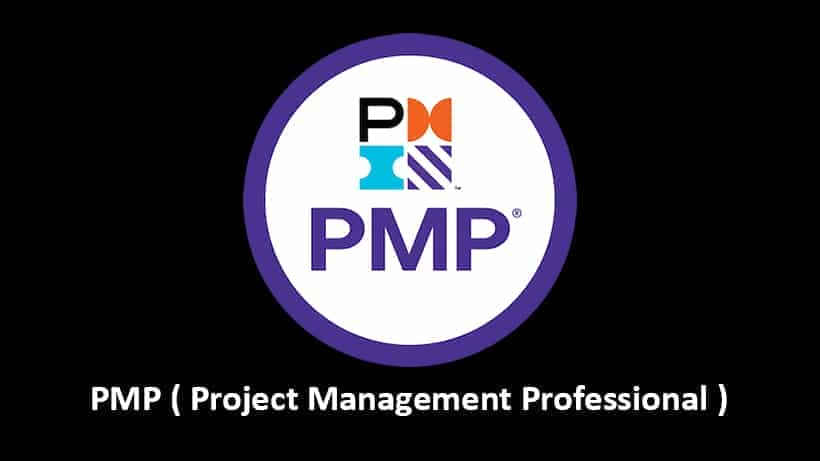
Project management has become a core skill for professionals across various industries. From technology and construction to healthcare and finance, organizations rely on skilled project managers to oversee the planning, execution, and completion of projects. As the demand for qualified project managers grows, obtaining a globally recognized certification can provide a significant edge in the job market. One such prestigious certification is the PMI PMP (Project Management Professional) certification.
For professionals looking to advance their careers in project management, the PMI PMP certification is often viewed as the gold standard. But is it the right choice for you? In this blog, we will explore the details of the PMI PMP certification, its benefits, and whether it aligns with your career goals.
At Cert Empire, we provide comprehensive exam preparation materials, including PMP exam dumps and study guides, to help you pass the certification exam with confidence. Whether you are just beginning your project management journey or looking to enhance your credentials, Cert Empire has the resources you need for success.
What is PMI PMP Certification?
The PMI PMP certification is a globally recognized credential offered by the Project Management Institute (PMI). PMI is a leading professional association for project management professionals, and the PMP certification is considered one of the most respected certifications in the field.
This certification validates your ability to manage projects across various industries and ensures that you are equipped with the essential skills and knowledge required for successful project delivery. By earning the PMI PMP, you demonstrate that you have mastered the five key process groups in project management: Initiating, Planning, Executing, Monitoring and Controlling, and Closing.
The PMP exam tests your knowledge of project management methodologies, best practices, and principles, as outlined in PMI’s PMBOK (Project Management Body of Knowledge) Guide. The certification is awarded to professionals who meet the following requirements:
- Eligibility Requirements: Candidates must have either a four-year degree (bachelor’s degree) along with 36 months of experience in project management, or a secondary diploma (high school or associate degree) with 60 months of project management experience.
- Exam Format: The PMP exam consists of 200 multiple-choice questions that cover a wide range of project management topics, including risk management, scope management, scheduling, and budgeting.
The PMP certification is recognized by employers worldwide as a mark of expertise and proficiency in managing complex projects from start to finish.
Benefits of PMI PMP Certification
Obtaining the PMI PMP certification offers several advantages that can significantly impact your career. Here are some of the key benefits:
1. Career Advancement Opportunities
As more companies embrace project-based work, the demand for certified project managers continues to rise. The PMI PMP certification positions you as an expert in your field and opens the door to numerous career opportunities. Some common roles for PMP-certified professionals include:
- Project Manager
- Program Manager
- Project Management Consultant
- Project Portfolio Manager
- Project Director
With the PMP certification, you are more likely to be considered for senior-level positions, which often come with more responsibility and higher pay.
2. Recognition in the Global Job Market
The PMI PMP certification is globally recognized and respected across industries and sectors. Whether you’re looking for work locally or internationally, the PMP credential shows that you have the skills to manage projects effectively, making you an attractive candidate to employers worldwide. The certification demonstrates your commitment to professionalism and continuous learning, which can boost your job prospects and career trajectory.
3. Enhanced Project Management Skills
The PMI PMP certification doesn’t just provide a credential – it equips you with the skills necessary to excel as a project manager. The certification process forces you to learn about industry best practices, methodologies, and tools for managing projects. You’ll gain practical knowledge in areas such as:
- Risk Management: Identifying, analyzing, and mitigating project risks.
- Cost Control: Developing budgets, estimating project costs, and managing project finances.
- Scope Management: Defining the boundaries of a project and ensuring that objectives are met.
- Scheduling: Developing timelines, setting milestones, and ensuring that projects are completed on time.
- Stakeholder Communication: Ensuring clear communication with team members, clients, and stakeholders throughout the project lifecycle.
By obtaining your PMI PMP, you not only improve your technical project management skills but also build essential leadership and communication skills that are key to leading successful projects.
4. Increased Earning Potential
One of the most compelling reasons to pursue the PMI PMP certification is the potential for increased earnings. According to PMI’s Earning Power: Project Management Salary Survey, project managers with a PMP certification earn, on average, 20% more than those without the certification. Additionally, the PMI PMP certification is often associated with higher-paying roles, such as Project Director or Program Manager, which typically come with additional responsibilities.
The financial investment in pursuing the PMP certification pays off with greater job security, higher salaries, and more growth opportunities.
Is PMI PMP the Right Certification for You?
The PMI PMP certification can be a game-changer for your career, but it’s important to assess whether it aligns with your goals and experience. Here are some key factors to consider when deciding if the PMP is the right choice for you:
1. Career Goals
Are you looking to specialize in project management, or are you considering a career in a different field? If you’re focused on becoming a senior-level project manager, program manager, or director, the PMI PMP certification is a solid investment. However, if you are interested in a more specialized role within a specific industry, you might want to explore certifications tailored to your area of focus.
2. Industry Demand
Different industries have varying demands for PMP certification. While the certification is valuable across sectors such as IT, construction, healthcare, and manufacturing, its value may be more pronounced in certain fields. For example, project management professionals in the construction or IT industries often see higher demand for the PMP certification compared to other sectors.
3. Experience Level
Do you have the necessary project management experience to qualify for the exam? The PMI PMP requires that candidates have a significant amount of hands-on project management experience. If you are just starting in project management, you may want to consider gaining more experience or pursuing a foundational certification, such as the CAPM (Certified Associate in Project Management), before tackling the PMP exam.
4. Commitment to Study
The PMI PMP exam is comprehensive and requires dedicated study time. Are you willing to invest the time and effort required to pass the exam? Consider your current workload, personal commitments, and study schedule before committing to the certification process.
How to Prepare for the PMI PMP Exam
Proper preparation is key to passing the PMI PMP exam on your first attempt. Here are some strategies to ensure you’re fully prepared:
1. Review the Exam Outline
Familiarize yourself with the exam outline provided by PMI. This will give you a clear understanding of the domains and knowledge areas that the exam covers. Use the PMBOK Guide as your primary study resource, as it is the foundation of the PMP exam.
2. Take PMP Prep Courses
Consider enrolling in formal PMP prep courses. These courses are designed to help you understand key concepts and pass the exam. You can find online courses, classroom training, or instructor-led programs.
3. Use Study Materials and Practice Tests
One of the most effective ways to prepare for the PMP exam is by using practice tests and study materials. At Cert Empire, we provide high-quality PMP exam dumps and practice tests to help you simulate the actual exam environment. These practice exams allow you to identify areas where you need improvement and boost your confidence.
4. Create a Study Plan
Establish a realistic study plan that allows you to cover all the topics thoroughly. Break down your study sessions into manageable chunks and allocate specific times for practice exams.
Common Challenges in PMI PMP Exam Preparation and How to Overcome Them
The PMP exam is challenging, and many candidates face difficulties along the way. Some common challenges include:
1. Understanding Complex Topics
Some topics in the PMBOK Guide may be complex, such as earned value management and risk management. To overcome this, break down these concepts into smaller parts and practice with real-world examples.
2. Time Management During the Exam
Managing time during the exam can be difficult due to the number of questions. Practice taking full-length practice exams to get used to the time constraints.
3. Balancing Study and Work
Many candidates find it difficult to balance their study schedule with work commitments. Plan your study sessions during quieter times or weekends and stay consistent.
Conclusion
The PMI PMP certification is one of the most valuable credentials for project management professionals. It offers career advancement opportunities, increased earning potential, and recognition in the global job market. However, before pursuing the certification, it’s important to consider whether it aligns with your career goals and experience level. With the right resources and preparation, including exam questions and practice tests, you can confidently pursue the PMI PMP certification and take the next step in your project management career.
Keep an eye for more latest news & updates on Well Known Figure!




